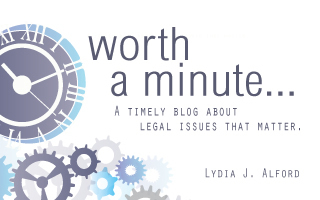Here’s how a creditor can collect on a Louisiana judgment:
Record the judgment in the land records and keep it up to date
The first thing a creditor should do after obtaining a Louisiana money judgment is to record it in the land records in all parishes where the debtor owns real property. The recorded judgment then acts as a lien against all currently owned and later acquired real property in that parish.
The recordation of the judgment, however, is good for only 10 years. To continue as a lien against the property, the judgment must be renewed before the end of the ten years. Therefore, the creditor should calendar a renewal reminder date at least 9 1/2 years after recording the judgment.
Court compels the debtor to divulge wages and all assets to the creditor
Creditors may also be interested in seizing the debtor’s personal or movable property. However, information on the debtor’s personal property will likely be private and not accessible by the public. So, the law allows the creditor to question the debtor about assets, income and debts.
This process is called a Judgment Debtor Examination. It is a legal proceeding, initiated by the creditor, in which the debtor is summoned to appear in Court to answer inquiries by the petitioning creditor. The debtor can also be compelled to produce copies of documents such as payroll checks, cancelled checks and income tax returns.
Generally, the judge swears the debtor in and the parties then go outside the courtroom where the creditor then asks the debtor about such things as:
- the debtor’s social security number and driver’s license number
- identification and value of all assets owned
- information on all bank accounts and balances in the accounts
- the name of the debtor’s employer and contact information for the employer
- the amount of the debtor’s net and gross wages and how often the wages are paid
- list of stocks, bonds and investment accounts owned and the value of each
- identification of automobiles owned and the value of each
- past or future inheritances
- current monthly expenses
- list of all debts
Seizure of assets and/or garnishment of wages
Following the debtor examination, the creditor usually has a better picture of the debtor’s financial situation and better able to determine if it is worthwhile to execute on the judgment. The creditor may garnish wages or seize bank accounts and/or real property, depending on circumstances such as the balance in the account(s), prior ranking liens or garnishments and the amount of legal fees and court costs to pursue collection. It is these legal expenses and court costs that businesses covered by the open accounts law can now recover by statute.
Restrictions on seizures
Not all assets are subject to seizure. For example, retirement accounts, certain amounts of life insurance and tools of the debtor’s trade are exempt from seizure.
Furthermore, the debtor may file bankruptcy after a judgment is obtained. If this occurs, the creditor must cease and desist all collection efforts and seek permission from the bankruptcy court to proceed with collection.
Open Accounts law
Businesses covered by the Louisiana open accounts law have long been able to collect pre-judgment attorney’s fees and court costs. In 2010 the Louisiana open accounts law was amended to grant post-judgment attorney’s fees and court costs as well. This is a right not granted to all creditors; so if the open accounts law applies to you, make sure to take advantage of it.
Summary of practical steps to collect on Louisiana judgment:
- Record the judgment in parish land records
- Tickle date to renew judgment
- Determine the assets, income and debts of the debtor through a Judgment Debtor Examination
- Request that the debtor bring documents to the Judgment Debtor Examination
- Determine if the cost to pursue seizure of assets is a practical worthwhile endeavor
- Initiate seizure actions
Visit our website to learn more about the services offered by Alford & Alford, LLP.

